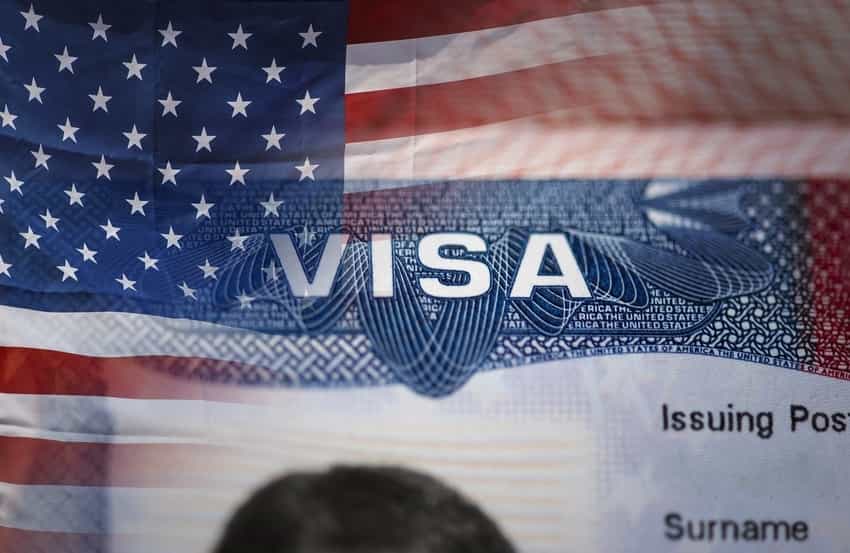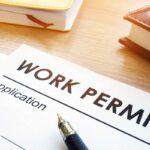The Trump Administration has announced certain exemptions in H-1B and L-1 travel ban for those continuing employment with the same employer.
The exceptions to the President’s proclamation of June 22, 10052, commonly referred to as the H-1B or L-1 travel ban, include family members of the H-1B, L-1 and certain categories of J1- Visa.
President Donald Trump’s June proclamation banned workers in several key nonimmigrant visa categories, including the H-1B, from entering the US on the grounds that they would take American jobs during the COVID-19 pandemic.
The H-1B visa is a nonimmigrant visa that US companies can use to employ foreign workers in specialized occupations that require theoretical or technical expertise. Companies rely on hiring tens of thousands of employees from countries like India and China every year.
The State Department, which issued the revised travel advisory, said Wednesday that the exceptions in the national interest category had been granted.
In its opinion, the State Department said that H-1B and L-1 visas can now be issued to employees “trying to resume current employment in the United States in the same position with the same employer and visa classification”.
Forcing employers to replace existing workers could create financial difficulties.
Also excluded are all persons with H-1B visas who work in the health sector, particularly in connection with the COVID-19 pandemic or to conduct ongoing medical research in an area with significant public health benefits (e.g. research on cancer or communicable diseases) the travel ban of July 22nd.
In the past few weeks in particular, several lawmakers have written to the Foreign Minister to exempt the health sector from the travel ban on H-1B, L1 and J1 visas.
Other new factors have been set to also allow H-1B visas to be issued when at least two of the five indicators are met, the State Department said.
Initial Cases The applicant employer continues to have a need for the services or labor to be provided by the nonimmigrant H-1B in the United States.
In cases where Labor Condition Applications (LCAs) were approved during or after July 2020 OR if the LCA was approved before July 2020, the consular officer must be able to use the visa application to determine the worker’s ongoing needs with the U.S. employer.
According to the State Department, if an applicant is currently performing or able to perform the essential functions of the position for the potential employer from outside the United States, these criteria may not be met.
Second, the roles or positions within the petitions company suggested by the applicant indicate that the individual is making significant and unique contributions to an employer meeting a critical infrastructure need.
Critical infrastructure sectors include chemistry, communications, dams, defense industries, emergency services, energy, financial services, food and agriculture, government institutions, healthcare and public health, information technology, nuclear reactors, transportation and water systems.
Third, the wage rate paid to the H-1B applicant significantly exceeds the applicable wage rate by at least 15 percent. If an H-1B applicant is receiving wages well in excess of the applicable wage, it indicates that the employee is fulfilling an important business need when an American worker is unavailable, according to the State Department.
Fourth, the education, training and / or experience of the H-1B applicant indicates unusual expertise in the occupation in which the applicant will be employed. For example, an H-1B applicant with a doctorate or professional qualification or years of relevant work experience may have such advanced expertise in the profession in question that he or she is more likely to be critical to the petitioning employer, it said.
Finally, the refusal of the visa will cause financial difficulties for the US employer.
The exemptions for L1 visas are largely similar to those for the H-1b. L-1A applicants looking to establish a new office in the United States are unlikely to fall into this category unless two of the three criteria are met and the new office will directly or indirectly include five or more US workers that State Department, Employ said.
The national interest exemptions are also available to their spouses and depend on them too, it said.
This includes those with H-4, L-2, and J-2 visas. National Interest Exemptions are available for those accompanying or following a lead applicant who is a spouse or parent and who has been granted a National Interest Exception to the President’s proclamation.
For the latest travel news and updates, Follow and connect with us on Facebook, Twitter and Linkedin!
Also Read – China To Suspend Etihad Airways, Srilankan Airlines Shanghai Route





